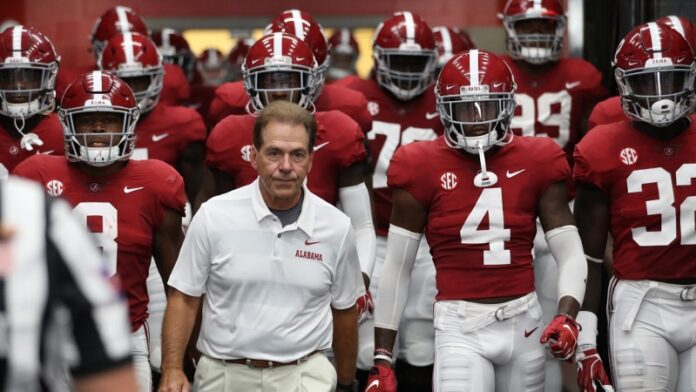Four teams. Three games.
The college football playoff will be the focus during the first eleven days of 2021.
It will hopefully be the cure to a disastrous, disrupted regular season, and even more lackluster bowl season that saw games cancelled and teams invited to play that certainly didn’t have the typical records afforded to the best squads across the country.
It’s too early to tell the long-range effect of COVID-19 on the various bowls and the host locations, but reality has clearly set in to a bowl system that had arguably grown too large and teams being invited that simply jockeyed to be bowl-eligible in scheduling.
The Final-Four selected for this year’s playoff certainly have the pedigree and can provide the excitement to give college football fans what has been mostly lacking throughout the current bowl season that began December 21st.
Alabama, Clemson, Ohio State and Notre Dame bring a marquee lineup that had little controversy in the selections other than a strong claim by left-out Texas A&M, which finished 8-1 in the tough Southeastern Conference, with its only loss coming against Alabama in week-2 before the Aggies reeled off 7 straight wins to end the regular season. Many thought A&M should have trumped Ohio State, which only played a 6-game season in the flip-flop season of not-playing, then playing, in the Big-Ten.

The four selections have a combined record of 37-2. The two losses came from the two games between Clemson and Notre Dame, where the Fighting Irish prevailed in the regular-season matchup against a Trevor Lawrence-less Clemson team. When Lawrence, the Tigers’ Heisman quarterback candidate, returned for the ACC championship game, Clemson dominated Notre Dame in Atlanta.
The CFP semifinals begin on January 1 when Alabama plays Notre Dame in the relocated Rose Bowl, now in Dallas instead of Pasadena. Clemson follows against Ohio State later that night. The two winners will play on January 11 at Hard Rock Stadium in Miami Gardens, Florida. Hopefully, no last minute COVID-19 testing or unexpected surges will throw a monkey wrench into the system.
Heretofore, the bowl season has been constantly in flux. Originally 44 games, 17 bowls to date have been cancelled. COVID-19 had already prompted the NCAA to remove its bowl eligibility standard of 6 regular season wins to qualify. With teams opting out to play under any circumstances, that left filling the bowl spots to less-than-stellar struggling teams with losing records.
South Carolina led the way in that category, as the Gamecocks had finished the season at 2-8 and fired its head coach along the way. Yet, South Carolina accepted a bid to the Gasparilla Bowl before testing positive days before the game and being forced to withdraw. The Gasparilla, unable to find a replacement team, then cancelled.
Bowl games had become less popular by the day. Normally, participating bowl teams enjoy major tourist attractions in the host city as part of a trip that lasts several days. Not the case this year. Teams instead were going to be in town for two nights, isolated in hotel rooms.
Virginia (5-5), Pitt (6-5), Boston College (6-5) and Virginia Tech (5-6), among others, decided not to play in bowls, choosing to go home to their families for the holidays after a long, disruptive season, instead of participating in a minor bowl game with no festivities.
The decision by Virginia Tech was particularly difficult considering the Hokies had the longest running bowl streak in college football. Boston College coach Jeff Hafley pointed out the pandemic was getting worse and questioned whether it was worth it to go through three weeks of practice, focus on staying healthy and continue to be apart from families, only to wonder, ” is the bowl game really going to happen, are we going to miss Christmas with our families, only to be told at the last minute we’re really not going to play?”
Many bowls were also not going to be able to have spectators, a clear factor in cancelling. Bowl games generally make money from television revenue, ticket sales and sponsorships. Bowls also had to renegotiate contracts with teams’ conferences, reducing payouts.
Bowl cities will also suffer. Parades will be cancelled and the thousands of fans flocking to see their teams won’t be present to bring millions of dollars to the local economies, from hotel rooms to restaurants and attractions.
Disney may be the big winner this bowl season with ESPN and ABC televising nearly every bowl game. Although other bowl-related businesses will suffer because of shutdowns, Disney will continue to benefit from people staying home and watching. The result is games becoming made-for-TV events.
Fans will now look to the final three games as the benchmark for a successful start to 2021. Hopefully, the return to college football for next fall’s season with have a more friendly face than offered in 2020.
Bill Turner

